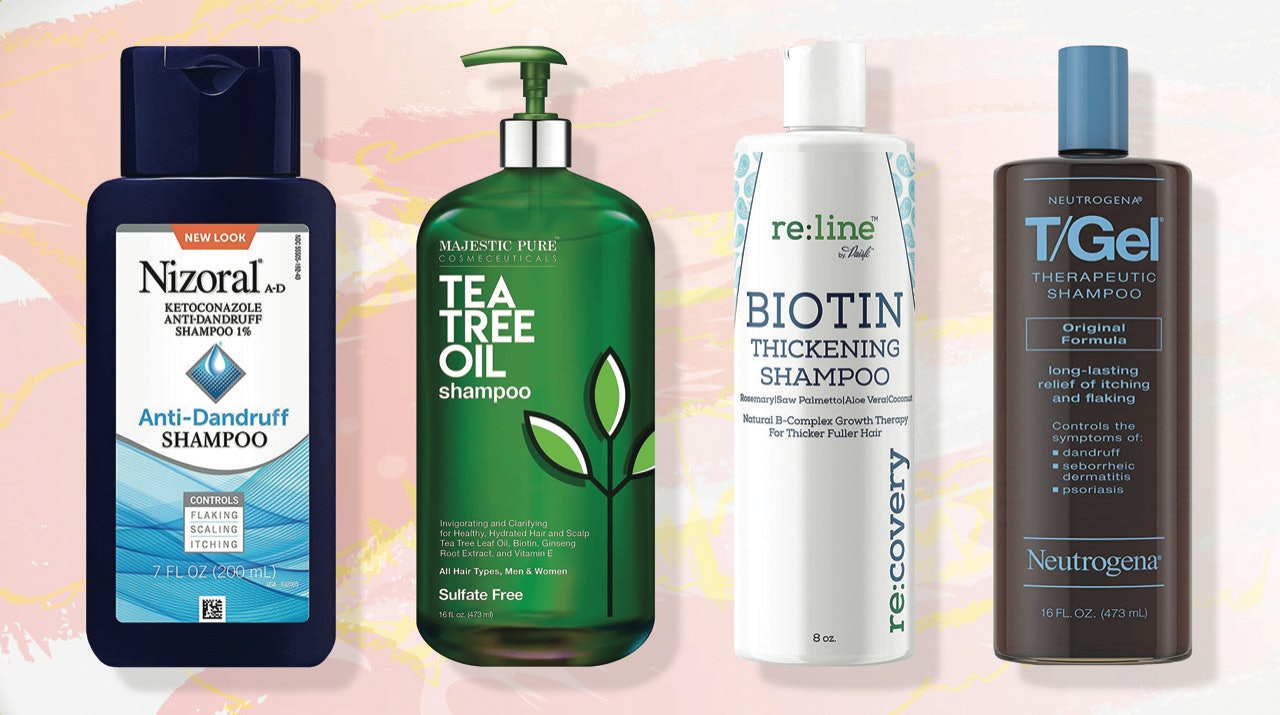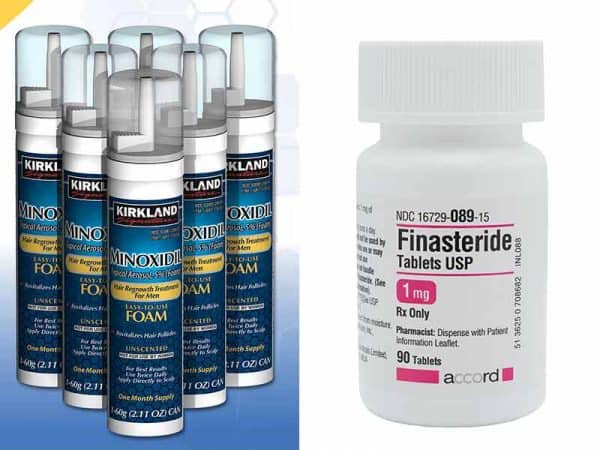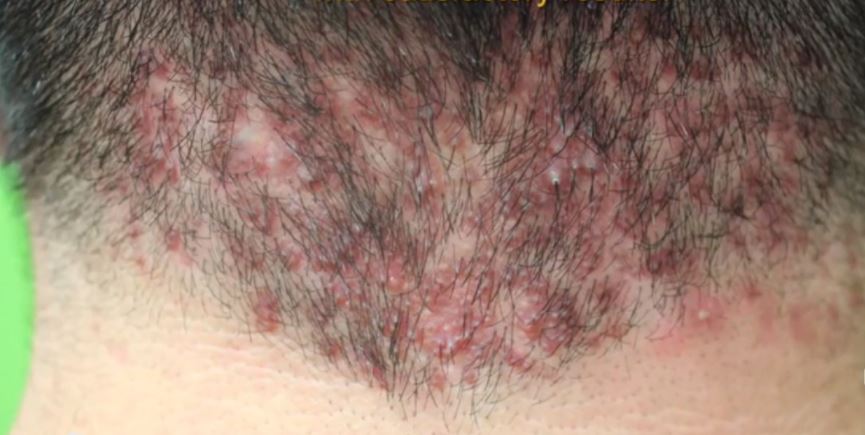Table Of Content
- How to Treat Hair Loss and Scalp Itching
- Of The Worst Shampoo Ingredients Hair Care Experts Warn Can Cause Massive Shedding
- If you have alopecia, can your hair grow back?
- Medical Conditions
- Treatments for Alopecia and Hair Loss
- These 4 Common Eyebrow Makeup Mistakes Actually Add Years To Your Face, Beauty Experts Warn
The thing that bugs me the most about a lot of hair oils on the market is that they are often too heavy and hard to wash out. It's incredibly lightweight (even for my fine hair ppl), but is still jam-packed with Ayurvedic staples like ashwagandha and dashmool to help soothe my irritated scalp. If you’ve been searching for a tried-and-true ritual to achieve longer, luscious hair, may we suggest hair oiling? TBH, it's basically the oldest trick in the book—as far as my ancestors are concerned. Some behaviors can contribute to scalp sensitivity, such as wearing tight hairstyles or using hair products that irritate the skin.
How to Moisturize Your Scalp to Soothe Flaking and Itching - Real Simple
How to Moisturize Your Scalp to Soothe Flaking and Itching.
Posted: Wed, 25 Oct 2023 07:00:00 GMT [source]
How to Treat Hair Loss and Scalp Itching
The 13 Best Shampoos for Thinning Hair of 2024 - InStyle
The 13 Best Shampoos for Thinning Hair of 2024.
Posted: Mon, 22 Jan 2024 08:00:00 GMT [source]
PPD can even lead to hair loss with repeated use or in those that are particularly sensitive to it. Itchy scalps can be a symptom of many different conditions, from dandruff, to allergic reactions, to skin conditions. Whatever the cause, an itchy scalp can be frustrating and distracting, and make us self-conscious. Those are the top itchy scalp causes, check to see if this is what’s ailing your scalp.
Of The Worst Shampoo Ingredients Hair Care Experts Warn Can Cause Massive Shedding
How you treat your itchy scalp depends on what’s causing the itching. Head lice spreads easily and is especially common among children 3-11 years old. The itching is actually an allergic reaction to the insect bites. You should also talk with your doctor if you’re worried about persistent hair loss or a receding hairline or if you notice sudden patchy hair loss. Patches of hair loss could signify an underlying medical condition. There are multiple other causes of itchy scalp not covered here.
If you have alopecia, can your hair grow back?
The doctor may send hair or scalp samples to a laboratory for further testing. They may also order blood tests to rule out an underlying condition. Doctors can often diagnose the cause of thinning hair by looking at the pattern of hair loss. A person should always dilute essential oils with a carrier oil, such as jojoba or coconut oil. They should never apply an essential oil without diluting it first, and they should never take an essential oil by mouth.
Love Beauty and Planet Hemp Seed Oil and Nana Leaf Soothe & Nourish Scalp Serum
Irregular or poor hair washing hygiene can impair the normal turnover of scalp skin cells, causing flakes, itchiness, and even a slight odor. We know, major cringe, but ringworm, or tinia capitis is also a cause for scalp irritation. The usual soil-borne cause for toenail fungus and athlete’s foot can also find its way onto our scalps via contact with our pets (sorry, Fido), towels, beddings and hair brushes.
Hair-Strengthening Oils To Add To Your Daily Routine For Thicker & Shinier Locks
Dandruff is a common scalp condition resulting in the shedding of dead skin cells from the scalp. It can occur due to many reasons, including blocked hair follicles. Keep in mind though that dandruff with hair loss is temporary and reversible. An itchy, dry scalp is typically not serious, but if you have intense itching and dryness with flaking skin, make an appointment with your healthcare provider. They can help you find the cause and the most effective treatments for the condition causing your symptoms. A healthcare provider like a dermatologist can help you determine what’s causing your itchy scalp.
Medical Conditions
Nearby lymph nodes may also become swollen and tender in some cases. If you’re not getting enough of certain vitamins and minerals, you might get dry, itchy skin all over your body—including your scalp. The symptoms that accompany an itchy scalp can help individuals and healthcare providers determine the trigger. In turn, this can point the way towards likely treatment options.
Dr. Spann suggests heating the oil for a few seconds for maximum penetration. “The oil should be delicately applied to dry hair and scalp using gentle, circular motions,” she says. You can also use a silicone scalp massager to really get in there if you're averse to digging your fingers into your scalp (and it helps me prevent from scratching with my long, gel-X nails). Then, gently massage into the scalp for 10 to 15 minutes in circular motions before smoothing through the lengths of your hair. A person may experience scalp tenderness and hair loss in one spot with alopecia areata. If you're on the prevention track to stop hair thinning before it starts, The Prevention Serum is for you.
These 4 Common Eyebrow Makeup Mistakes Actually Add Years To Your Face, Beauty Experts Warn
Still, there’s not enough evidence that essential oils can treat baldness or thinning hair. If you do decide to give this treatment a go, make sure that your essential oil is diluted in a carrier oil such as coconut oil or jojoba). An itchy scalp due to a fungal infection, lice, and some other conditions won’t go away without medical treatment.

Head lice (Pediculus humanus capitis) is a common cause of a very itchy scalp. While it usually does not cause dry, flaky skin on the scalp, lice and their eggs (nits) can be confused for a condition like dandruff or eczema. Other symptoms of scalp eczema include a red rash, swelling, bumps on the skin, crusting skin, and leathery patches of skin. If an at-home treatment is not effective, you can ask a healthcare provider about a stronger treatment. They can recommend additional products that you can buy without a prescription or prescribe a medication.

A person with these symptoms may need to work closely with their healthcare provider to find the best treatments for these conditions. Some people have allergic reactions to hair products, such as black hair dye, causing itching and rashes on the skin. Baldness typically refers to excessive hair loss from your scalp. Hereditary hair loss with age is the most common cause of baldness.
While research suggests there are health benefits, the FDA doesn’t monitor or regulate the purity or quality of essential oils. It’s important to talk with a healthcare professional before you begin using essential oils and be sure to research the quality of a brand’s products. In addition to a physical exam, your doctor may take a scraping of your scalp. In a lab, skin cells can be tested for the presence of fungi, bacteria, or lice. However, most doctors can diagnose the cause of your itchy scalp through a careful examination and review of your medical history. Your dermatologist might suggest a hair transplant as an option if you're experiencing thinning or balding in a specific area due to male or female pattern baldness.
Typical causes of folliculitis include fungal and bacterial infections. Low-level light therapy (LLLT) has also been approved by the U.S. Food and Drug Administration (FDA) as a treatment option and is effective in treating androgenic hair loss. Your healthcare provider may suggest taking specific supplements if a nutritional deficiency causes your symptoms. Hormonal therapy may be suggested if there is a hormonal cause for the symptoms.
All information presented is purely research-based and correct at the time of publication. People can develop a treatment plan with a doctor to manage their psoriasis. Scalp psoriasis is a chronic autoimmune disease that causes raised, reddish, scaly patches on your scalp.
Try to find ways to manage stress, and strive for a well-balanced diet that includes plenty of fruits and vegetables. Generally speaking, the sooner you start treatment, the more options you have and the better your results, dermatologists say. Alopecia areata is an autoimmune disease that causes hair to fall out in nickel- or quarter-size patches. “Your body’s immune system is attacking the hairs,” Brodell says. “As soon as you notice hair loss is happening, you should come in,” says Lauren Eckert Ploch, a dermatologist in Aiken, South Carolina. Try aloe vera, baking soda, turmeric, and essential oils, and keep track of your vitamin D levels.













